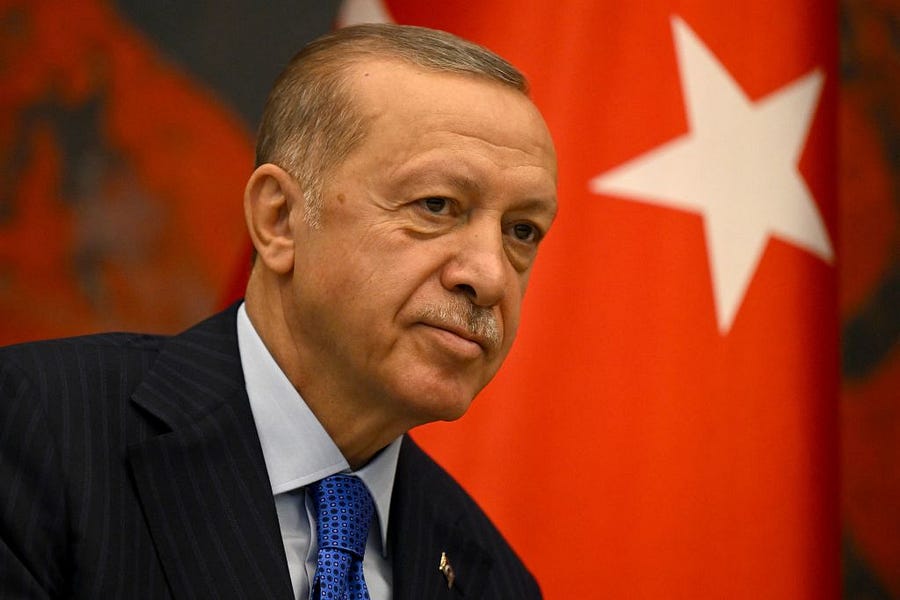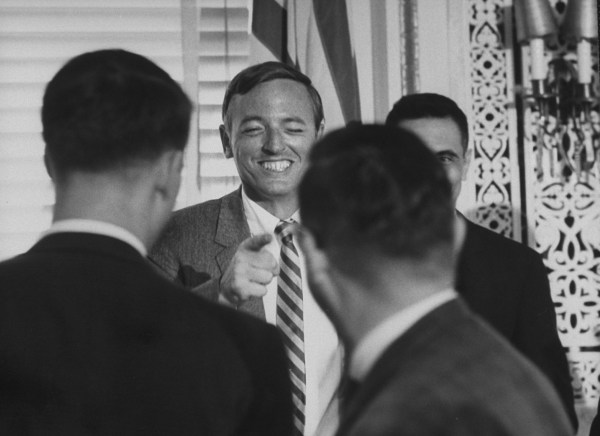To an outside observer, Turkey’s behavior since the start of the Ukraine war might seem erratic. When Russia began its aggressive warfare, Turkey condemned the attack and put a planned acquisition of new Russian weapons on hold. The Turkish company Baykar—one of whose executives is President Recep Tayyip Erdoğan’s son-in-law— provides the Ukrainian military with Bayraktar drones free of charge. But Turkey was also staunchly opposed to the accession of Sweden and Finland to NATO—until it was persuaded to drop its veto.
Turkey helped broker a deal between Ukraine and Russia to allow Ukrainian grain shipments safe passage through the Black Sea, all while adopting Russian payment systems to facilitate business and travel for Russian citizens (a decision that has now been reversed under international pressure).
While Turkey at least pretends to be a committed NATO member, even the most experienced analysts find it hard to pin down where Ankara’s allegiances lie.
At a press conference earlier this month—held with Serbian President Aleksandar Vučić, who has maintained a close relationship with Russia—Erdoğan added another item to the list of Turkey’s unpredictability in the Ukraine conflict. The Turkish president expressed his view that Western policy is based on provocation, and that leaders in Europe “underestimate” Moscow. Erdoğan’s position is exactly in line with the talking points of the Kremlin and echoed by his allies. The Turkish leader seems to express his views with a certain cool, as the 68-year old was seen dozing off during the press conference on multiple occasions.
One day, Russia decries Turkey’s indirect military aid to Ukraine; another day, it vows to buy the inflation-riddled Turkish lira for its rainy day fund. To Western media and political counterparts, Ankara amplifies criticism it gets from the Kremlin, all while posing as an ally of Russia to those at home who begrudge the arrogance of Europe and the United States.
Turkey is “being pro-Ukraine without being anti-Russia,” says Sinan Ülgen, a senior fellow at the Carnegie Europe think tank to Politico Europe. The assessment is accurate, and it has long been a frustration for leaders in Europe. French President Emmanuel Macron asked NATO Secretary General Jens Stoltenberg before the summer to get clarity on the positioning of Turkey.
What appears to be an international gamble is, in fact, a domestic strategy. According to polls, almost 80 percent of Turks prefer the country to remain neutral in the fight between Russia and Ukraine, with less than 20 percent supporting the NATO alliance. Other surveys have shown how the handling of the crisis has increased the support for the ruling majority in the country. With presidential elections coming up in Turkey in June, Erdoğan is likely to increase his erratic behavior on the issue, making both sides think they have his support.
Turkey has been a popular destination for fleeing Russian conscripts because travel to Turkey requires no visas, but it is yet unknown how Putin will address the issue as the Kremlin continues to deny the exodus is taking place. . Moscow-Istanbul flights have increased to as much as 30,000 Turkish liras ($1,600), and individuals and companies are willing to pay up to $28,000 for charter flights to get themselves and employees out of the country. The Turkish government has yet to release numbers on how many Russians have entered the country with the aim of escaping partial mobilization.
Russia has most likely written off Turkey as the unreliable flip-flopping nation it is, only naming it as an ally to taunt the West. Europe on the other hand, continues to regard Turkey as a friendly nation, despite keeping its political distance. Visa approvals for Turkish citizens to the EU are down 40 percent, and any pretense of Turkey becoming a member of the European Union has been abandoned by Brussels. Whether Turkey would indeed fulfill its commitments to NATO in case of an escalation is hard to guess. The last time Turkey put troops on the ground with NATO, other than for reasons of its own strategic interests in the Middle East, was in the Korean War seven decades ago.
NATO leaders will eventually be forced to draw a line in the sand and make Turkey choose. Does it stand on the side of territorial integrity in the face of aggressive warfare in Europe, or does it side with the aggressor? Its current model of pretend-neutrality mixed with high-stakes war profiteering should not be acceptable to the West.
Bill Wirtz is a political commentator from Luxembourg, covering EU politics and policy.






Please note that we at The Dispatch hold ourselves, our work, and our commenters to a higher standard than other places on the internet. We welcome comments that foster genuine debate or discussion—including comments critical of us or our work—but responses that include ad hominem attacks on fellow Dispatch members or are intended to stoke fear and anger may be moderated.
With your membership, you only have the ability to comment on The Morning Dispatch articles. Consider upgrading to join the conversation everywhere.